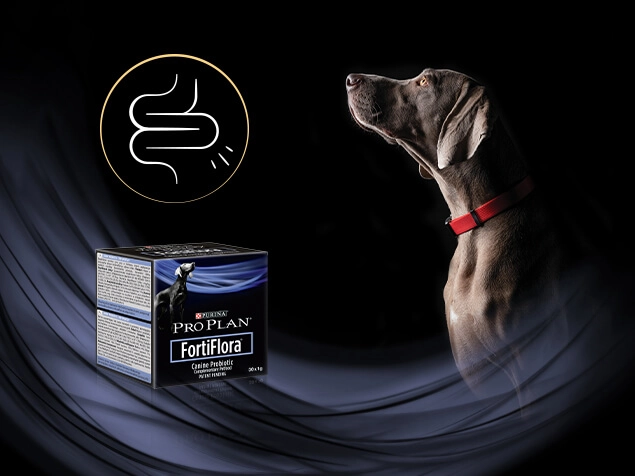Healthy microorganisms in your dog’s digestive tract perform a number of crucial functions, including as nutrition absorption and production and disease prevention through immune system support. That delicate microbial balance may be thrown off by things like stress, dietary changes, or antibiotic usage, which in turn can cause all sorts of health issues (including stomach distress). Here’s when the aid of probiotics comes in handy. Read on to find out what probiotics are, why they’re helpful, and which brands provide the finest probiotics for canines.
To what extent do canine probiotics work?
Your dog’s digestive system, vitamin synthesis, and immunological health all rely on the trillions of “good” microorganisms living in his or her intestines. However, the microbiome’s delicate balance may be thrown off, allowing dangerous bacteria to flourish at the price of beneficial ones. Probiotics are living microorganisms that may help dogs reestablish a normal microbial balance in their digestive systems.
When should you feed your dog probiotics?
Dogs with a microbial imbalance may exhibit gas or diarrhea. There are several potential triggers for microbial imbalance:
- Sudden changes in diet.
- Separation anxiety.
- Long-term antibiotic use.
- Stressful experiences such as moving into a new home.
Some dog owners may consider starting their pets on probiotics for these reasons. However, before introducing a probiotic supplement to your dog’s food, it is essential to have your vet’s approval. Your veterinarian will be able to recommend a high-quality probiotic preparation for your dog since there are so many available.
Which probiotics work the best for canines?
Numerous probiotic choices exist in the event that your veterinarian advises their use for your dog. There are a number of different forms that probiotics for dogs may take:
- Tablets
- Chews
- Food spray
- Powder (such as Purina PRO PLAN FORTIFLORA)
When giving your pet probiotics, be sure to do so in accordance with the manufacturer’s instructions and your veterinarian’s advice on how often and how much to provide.
Purina PRO PLAN Canine FORTIFLORA Probiotics for Dogs

Purina PRO PLAN Canine FORTIFLORA comes in powder sachets that may be sprinkled over your dog’s food once a day to provide probiotics. The lactic acid bacteria Enterococcus faecium is included in this supplement to assist maintain a healthy gut microbiota and overall health in dogs of all ages. Here you may get further information about our dog probiotic.
Consult your veterinarian before giving a probiotic to your dog.
Can probiotics be given to puppies?
Yes, veterinarians occasionally suggest giving pups probiotics made specifically for canines. For young dogs, they may be a lifesaver. Puppies often have stomach issues because to the stress and worry that comes with all the new experiences they have. Changing your diet should be done gradually to avoid any digestive issues; nevertheless, occasionally even the best-laid plans go awry. So, this is where probiotics may really help out. Again, consult your doctor before giving your puppy probiotics; there are many potential causes of stomach problems in pups, and it’s crucial to rule out severe disorders if your dog is ill.
Could yogurt be beneficial as a probiotic for canines?
Yogurt has a well-deserved reputation for providing people with beneficial intestinal microorganisms. Given that dogs’ digestive processes vary from humans’, the probiotic advantages of yogurt are met with greater skepticism when applied to canines. As long as you don’t give your dog any of the sweetened varieties, and just give it a little amount sometimes, yogurt shouldn’t be harmful to them. However, some dogs have digestive issues with lactose, which is found in yogurt, so it’s vital to start with a modest quantity and cease giving it if there are any difficulties.
Finally, it’s important to constantly check the label for substances that might be harmful to your dog, such as xylitol, and to steer clear of such items.